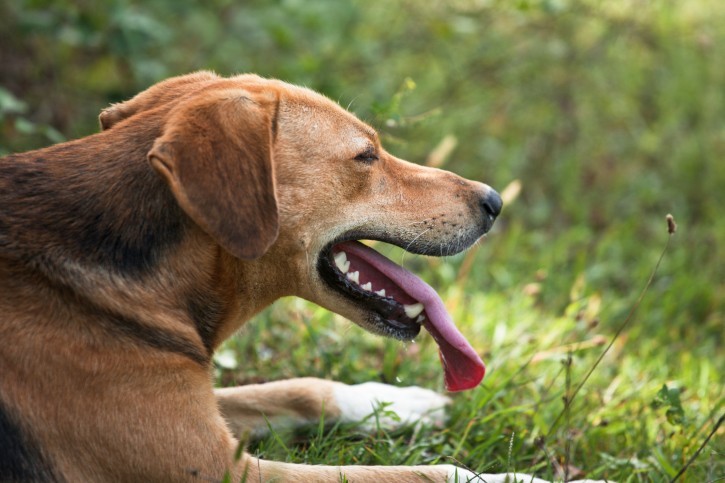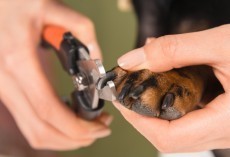The biggest difference between a dog and human, when it comes to Summer heat, is the way we regulate out body temperatures. Humans can cool themselves down by perspiring. Dogs, on the other hand, have to regulate their temperatures via respiration. Also known as panting.
However, if a dog’s respiration cannot keep up your pet might be in trouble! Heatstroke is a very real possibility.
Here are some signals and solutions to watch for:
1. Watch your pooch for signs of overheating during the hot weather. Dogs having difficulty with hot temperatures exhibit a combination of the symptoms mentioned above (hyperventilation, excessive panting, dry gums that become pale, increased salivation, erratic or rapid pulse, confusion, weakness, diarrhea, vomiting, and possibly rectal bleeding). Once you notice these signs, move your pet to a cooler area immediately, preferably with a fan. Dogs with heavy fur coats and short muzzles tend to manifest signs sooner than other breeds.
2. Using a rectal thermometer, take your pet’s temperature. A dog’s normal body temperature is 101.5 degrees Fahrenheit. Moderate heating usually happens at around 103 to 106 degrees, while severe heating typically occurs beyond 106 degrees. Contact your vet or the nearest emergency center and then report your dog’s temperature along with the symptoms he is exhibiting.
3. Reduce your pooch’s temperature by putting cool wet towels over his neck, under his armpits, and between his hind legs. Wetting his ear flaps and paw pads using cool water is also advisable. If you are outdoors, a stream or pond can be used to help him cool down.
4. Give your dog fresh cool drinking water. Never force water into his mouth as he may likely suck it out into his lungs. If your pooch refuses to drink, try wetting his tongue with the water instead. Do not offer ice to a dog experiencing heatstroke. If eaten, ice can cool his core body temperature too quickly, shocking his system.
5. Finally, transport your overheated pooch to your vet. Call ahead so he can be alerted to prepare for your dog’s treatment. Your pet may have to receive oxygen, some fluids, and other treatments. With severe overheating, seizure and or cardiac arrest may occur.
You vigilance this Summer will keep your dog healthy and happy for a long time to come! For more information check out The Dogington Post and have a wonderful Summer with your furry companion.









